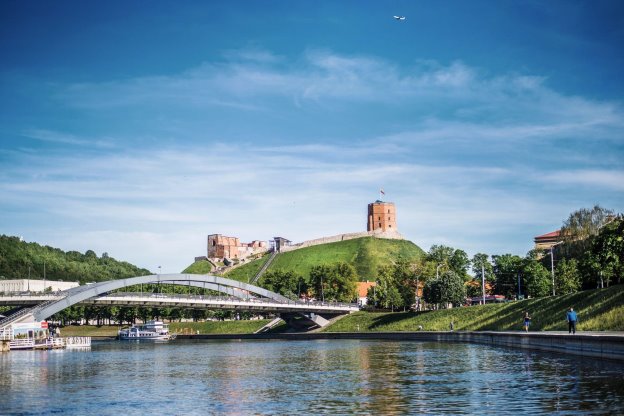Last week Vilnius, the capital of Lithuania, became the capital of green Europe — the city was announced as one of the three finalists in the 2025 European Green City awards.
In the European Green Capital 2025 elections, organized by the European Commission, Vilnius has become one of the three finalists and joined the Green Capitals Network. The prestigious Green Capital award was also given to Gimarains, Portugal, and Graz, Austria.
"This is an important recognition for our city and a confirmation that we are heading in the right direction. Our goal is for Vilnius to become a completely climate-neutral city by 2030. Each year, we allocate more attention to preserving biodiversity, mitigating climate impact, promoting sustainable mobility, and managing city life more efficiently. Our city's vision for development is to remain open, innovative, and unafraid to experiment," said Valdas Benkunskas, Mayor of Vilnius, during the European Green Capital award ceremony in Tallinn.
According to him, a high-quality living environment should be provided to all the city’s residents, regardless of where they live in the city. Energy independence is also a crucial area. "In this regard, we are categorical — we must ensure that the city uses renewable energy sources and does not depend on fossil fuels." added V. Benkunskas.
When evaluating cities, seven key areas important to the quality of urban life are taken into account: air and water quality, waste management, circular economy development, noise levels, promotion of biodiversity, and climate change adaptation. The designation of a city as a Green Capital is decided by an independent expert commission.
The Green Capital title is a prestigious award - it signifies that the city is creating a more favorable environment for both nature and its residents. The award helps spread awareness of the city's policies, share experiences, set an example for other cities, attract more investments, and qualify for EU-supported environmental and other funds. The Green Capital also receives €600,000 in funding for EU-level events.
Out of all the applications received, ten contenders are selected for the European Green Capital title. From these, the top three cities with the best performance become finalists. The European Green Capital Awards have been organized by the European Commission since 2008. This idea, aimed at encouraging cities to become more environmentally friendly and create a healthier environment for their residents, originated from a memorandum of understanding signed by fifteen European cities.
Stockholm was the first city to win the European Green Capital title in the previous decade. This year, Tallinn represents the European Green Capital, and in 2024, it will be Valencia. Green Capitals continue to collaborate as part of the Green Capitals Network, which includes 36 cities, while implementing ambitious city improvement ideas.
Trevise, Italy, and Viladecans, Spain, became the European Small Green Capital. To qualify for the title of European Small Green Capital, cities must have a population ranging from 20,000 to 100,000 residents.
www.govilnius.lt
